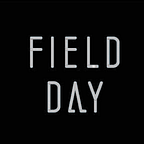3 New Ways of Teaching Science with Games
Each of these Wisconsin educators is known for his or her innovative teaching that bridges curiosity with rigor and plays with discipline. They’re creative and energetic teachers who push the boundaries of education. They’re interested in doing new things. They share our vision for education.
Before they were Field Day Fellows, some of them were already using our tools in new ways. Larry used Siftr, an online app for collecting geo-locative photos, to teach poetry to 2nd and 3rd graders. He will continue exploring what can be done with Siftr as well as advise us on the future of the Siftr platform. We’ll be developing mini (5–10 minute) science games and simulations with Heidi, which she will use to teach complex scientific concepts to her middle school classes this fall. Brenna is new to Field Day tools. She will use Siftr at the Aldo Leopold Nature Center to teach about local ecology as part of their outdoor educational programming.
The goal of the Field Day Fellowship is to partner with educators who are invested in designing interactive and hands-on opportunities that promote learning through design and/or engage students in doing field research.
The Fellowship, which began July 1, is six months long. During the first phase, each teacher works alongside a Field Day designer and researcher to develop a project and a research protocol. During the second phase of the fellowship, the teachers will implement their project and help Field Day study its impact on student learning.
By the end of the fellowship, each teacher will have produced with us a new method, story, game, or technology that can be reused, improved upon, and freely spread throughout Wisconsin. This co-research and implementation method is one way the Field Day Fellowship stands out from many other professional development and design initiatives.
We’re not just focused on making what we think is important and then distributing that to the teachers. And we’re not a professional development fellowship that treats teachers as if they don’t know much and need to be trained. Teachers pay the price for both those methods — either by the not-so-subtle message that they are actually unqualified for their jobs or by giving them untested theories and ideas that may not even work. Instead, we believe teachers are creative agents who play an essential part in research and experimentation. They are “in the trenches” at schools, working daily with the students. They know what it takes to help their students learn.
Every one of the technologies we’ve developed at Field Day is the direct result of working with a teacher. We want to continue doing new things with education — but we don’t have the answers ourselves. We aren’t the third-grade science teachers, the ninth grade English teachers, the undergraduate folklore professors. We can’t do this big thing called education innovation alone. Innovation doesn’t come from working alone!
